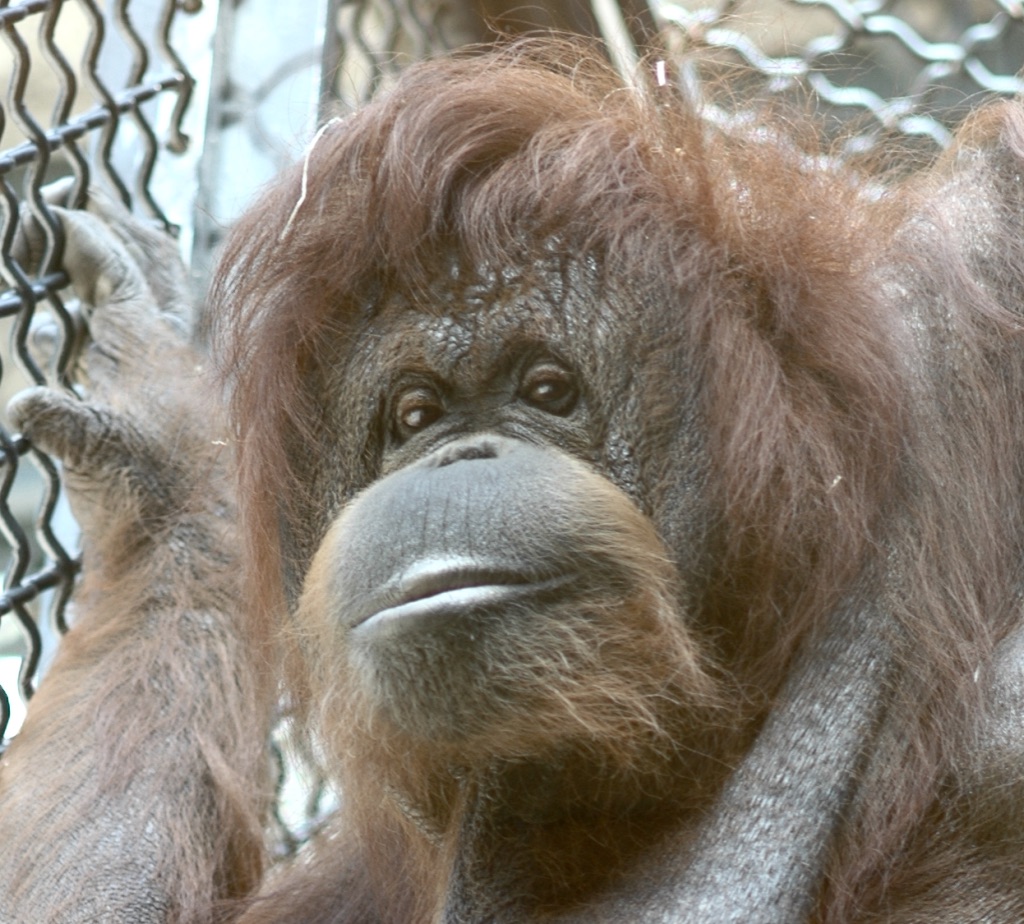Nicolas Philibert on « Nénette »
« Nénette » gives us an ape in a cage – for 70 minutes. Is the director serious?
In Etre et Avoir he captivated us with the daily doings at a one-room school in deepest rural France. In Back to Normandy he made us care deeply about what happened to the cast and crew of a 1970s French film few had ever heard of. Ace documentarist Nicolas Philibert is obviously a man who likes a bit of a challenge, but – honestly – asking us to spend a full 70 minutes watching an elderly orang-utan in a Paris zoo? With Nénette, he’s having a laugh – surely?
‘I know, it’s absurd,’ admits the 60 year old from north-eastern France. ‘I won’t do it again. Promise.’ This he says with a cheery giggle. When we meet at last year’s Edinburgh Film Festival, it’s obvious that this rather jolly, unassuming man doesn’t take himself too seriously – but is, of course, deeply thoughtful about his craft and cinema in general. If that seems like a paradox, then Philibert is full of them. Try this one, for instance… ‘The beauty and importance of a film aren’t linked to the subject. You can make a bad film from a so-called “important” subject, but you can also make a great film from a theme that seems tiny or banal.’ Like an ape sitting in a cage, he means, though Nénette was a project which came together ‘petit à petit,’ he says.
After visiting the primate house in Paris’s Ménagerie du Jardin des Plantes, a venerable institution dating from 1794, he was struck by Nénette, a Rubenesque widow who’s been on display for 38 years. She’d outlived four husbands and, unlike three other orang-utans in the same pen, had grown up in the wild. Intrigued by her distant manner, Philibert came back a few days later with his video camera, shot for a few days more, then edited and filmed some more. What started out as an idea for a 15-minute short grew and grew, in part because Philibert built up the soundtrack first then added the visuals, thus playing the images of Nénette in her cage – lolling, peering directly at us, remote, and tragic – against the constant chatter of sundry unseen spectators, whose comments reveal their own neuroses, often to pointedly comedic effect.
‘As soon as I started I knew I was making a film about cinema,’ maintains Philibert, immediately dispelling any notions one might have that this is ‘just’ a portrait of a fascinating distant relative. ‘Behind the glass, Nénette is a surface on which we project. Behind the transparency, there is opacity, something as mysterious as the Mona Lisa. So she becomes the surface on which we see our own projections, our fantasies, our imagination. Nénette is “the other”, par excellence. Close to us, yet out of reach, and somehow frightening…’ Frightening and more, in fact. Although the prospect of spending 70 minutes in Nénette’s company is daunting at first, Philibert’s film works like he says it does. There’s something about the way she looks back at you which gets you thinking about your life in comparison. Are we all that isolated? Are we all that constricted by those who claim to have our best interests at heart? Is our species doomed too? What does it say about us that we put our closest relatives in the animal kingdom in cages? Or that we let them face extinction in the wild in the first place? What once seemed like a tiny theme balloons out in issues of morality, common humanity, self-knowledge… in essence, it’s whatever you make of it. ‘Of course, it’s a peep show, it’s about the nature of documentary, documentary as a kind of voyeurism,’ adds Philibert, gathering steam. ‘What it’s not is an “animal documentary”. I didn’t include comments from scientific experts on the apes or the environment, because I wanted Nénette to retain her mystery. If a film answers in advance all the questions an audience might have, then the viewers don’t have to participate. They’re just passive. I want to keep the questions open.’ But the structure, the material is shaped in a way that prompts our questions, it’s not just open plan, anything goes, right?
‘Of course, I have a point of view, obviously. But it’s not didactic. When you make a film, you pretend you’re in control of everything. Master of the world. But there’s so much you don’t know about what you’re doing. So much that’s invisible, and you have to admit that.’ So creative control is about surrendering control. Well, we did say he was Monsieur Paradoxe. ‘There’s nothing better, from my point of view,’ he sums it up, ‘than learning something new about the film you’ve made from the responses you get from viewers. It’s just lovely when they appropriate it for themselves.’
